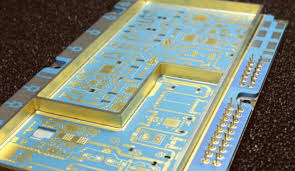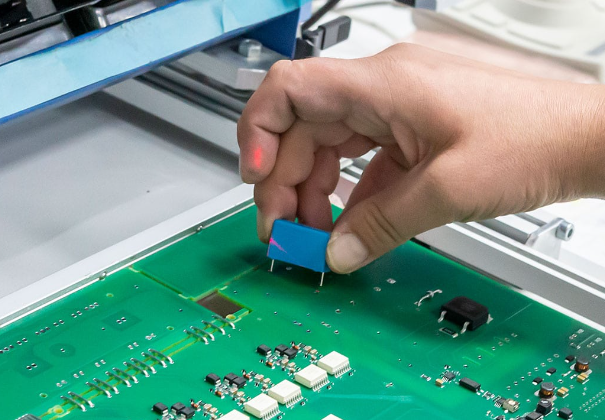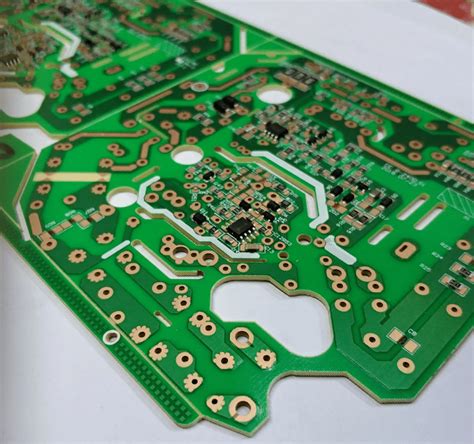Ceramic pcb supplier
Advantages Of Choosing A Ceramic PCB Supplier For High-Performance Applications
In the realm of high-performance applications, the choice of materials and components is crucial to ensure reliability, efficiency, and longevity.
One such critical component is the printed circuit board (PCB), which serves as the backbone of electronic devices.
Among the various types of PCBs available, ceramic PCBs have emerged as a preferred choice for high-performance applications due to their unique properties. Opting for a ceramic PCB supplier can offer numerous advantages, making it a strategic decision for industries that demand superior performance and durability.
To begin with, ceramic PCBs are renowned for their excellent thermal conductivity.
This property is particularly beneficial in applications where heat dissipation is a significant concern. Unlike traditional PCBs made from materials such as FR-4, ceramic PCBs can efficiently manage and dissipate heat, thereby reducing the risk of overheating and enhancing the overall performance of electronic devices. This makes them ideal for use in high-power applications, such as LED lighting, power electronics, and automotive electronics, where thermal management is critical.
Moreover, ceramic PCBs exhibit exceptional mechanical strength and stability.
This robustness ensures that they can withstand harsh environmental conditions, including extreme temperatures and mechanical stress. As a result, they are well-suited for use in aerospace, military, and industrial applications, where reliability and durability are paramount. By choosing a ceramic PCB supplier, companies can ensure that their products are equipped with components that can endure demanding conditions without compromising performance.
In addition to their thermal and mechanical advantages, ceramic PCBs offer superior electrical insulation properties.
This characteristic is essential for maintaining signal integrity and preventing electrical interference in high-frequency applications. The high dielectric strength of ceramic materials ensures that electronic signals are transmitted with minimal loss, making them ideal for use in telecommunications, RF modules, and other high-frequency devices. Consequently, partnering with a ceramic PCB supplier can enhance the performance and reliability of electronic systems that require precise signal transmission.
Furthermore, ceramic PCBs are known for their miniaturization capabilities.
The ability to create compact and lightweight designs without sacrificing performance is a significant advantage in today’s electronics industry, where there is a constant demand for smaller and more efficient devices. Ceramic materials allow for the integration of multiple functions into a single board, reducing the overall size and weight of electronic products. This is particularly beneficial in applications such as medical devices and consumer electronics, where space and weight constraints are critical considerations.
Additionally, ceramic PCB suppliers often provide customized solutions tailored to specific application requirements.
This flexibility allows companies to work closely with suppliers to develop PCBs that meet their unique needs, whether it involves specific material compositions, design configurations, or performance specifications. By collaborating with a ceramic PCB supplier, businesses can leverage their expertise and experience to achieve optimal results for their high-performance applications.
In conclusion, the advantages of choosing a ceramic PCB supplier for high-performance applications are manifold. From superior thermal management and mechanical strength to excellent electrical insulation and miniaturization capabilities, ceramic PCBs offer a range of benefits that make them an ideal choice for industries that demand the highest levels of performance and reliability. By partnering with a reputable ceramic PCB supplier, companies can ensure that their products are equipped with cutting-edge technology that meets the rigorous demands of modern electronic applications.
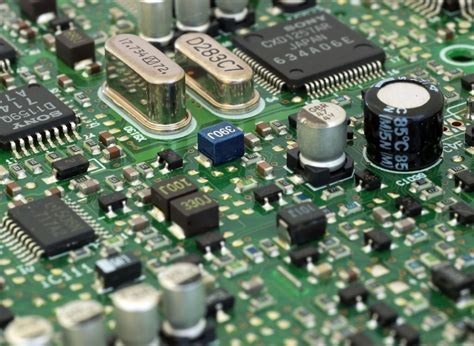
Key Factors To Consider When Selecting A Ceramic PCB Supplier
When selecting a ceramic PCB supplier, several key factors must be considered to ensure that the partnership will meet your specific needs and expectations. Ceramic PCBs, known for their excellent thermal conductivity, high-frequency performance, and mechanical stability, are increasingly used in various industries, including aerospace, automotive, and telecommunications. Therefore, choosing the right supplier is crucial to achieving optimal performance and reliability in your applications.
First and foremost, it is essential to evaluate the supplier’s experience and expertise in manufacturing ceramic PCBs.
A supplier with a proven track record in the industry is more likely to understand the complexities and nuances associated with ceramic materials. This experience can translate into better quality products and more efficient production processes. Additionally, an experienced supplier is more likely to have encountered and resolved various challenges, which can be beneficial in addressing any issues that may arise during your project.
Another critical factor to consider is the supplier’s manufacturing capabilities.
It is important to ensure that the supplier has the necessary technology and equipment to produce ceramic PCBs that meet your specifications. This includes the ability to handle different types of ceramic materials, such as alumina, aluminum nitride, and beryllium oxide, each of which has unique properties and applications. Furthermore, the supplier should be capable of producing PCBs with the required layer count, thickness, and design complexity. Advanced manufacturing capabilities, such as laser drilling and precision screen printing, can also be advantageous in achieving high-quality results.
Quality assurance is another vital aspect to consider when selecting a ceramic PCB supplier.
The supplier should have robust quality control processes in place to ensure that each product meets the highest standards. This includes thorough testing and inspection procedures at various stages of production. Certifications such as ISO 9001 or AS9100 can provide additional assurance of the supplier’s commitment to quality. Moreover, it is beneficial to inquire about the supplier’s track record regarding product reliability and customer satisfaction.
In addition to technical capabilities and quality assurance, it is important to consider the supplier’s ability to provide excellent customer service and support.
A supplier that is responsive and communicative can make a significant difference in the success of your project. This includes providing timely updates on production progress, addressing any concerns or issues promptly, and offering technical support when needed. A supplier that values customer relationships and prioritizes customer satisfaction is more likely to be a reliable partner in the long term.
Cost is another factor that cannot be overlooked.
While it is important to find a supplier that offers competitive pricing, it is equally important to ensure that cost savings do not come at the expense of quality. It is advisable to obtain detailed quotes from multiple suppliers and compare them carefully, taking into account not only the price but also the value offered in terms of quality, service, and capabilities.
Finally, consider the supplier’s flexibility and ability to accommodate your specific needs.
This includes the ability to handle custom designs, offer quick turnaround times, and scale production as required. A supplier that can adapt to your changing requirements can provide a significant advantage in a dynamic and competitive market.
In conclusion, selecting the right ceramic PCB supplier involves careful consideration of several key factors, including experience, manufacturing capabilities, quality assurance, customer service, cost, and flexibility. By thoroughly evaluating potential suppliers based on these criteria, you can establish a successful partnership that meets your needs and contributes to the success of your projects.
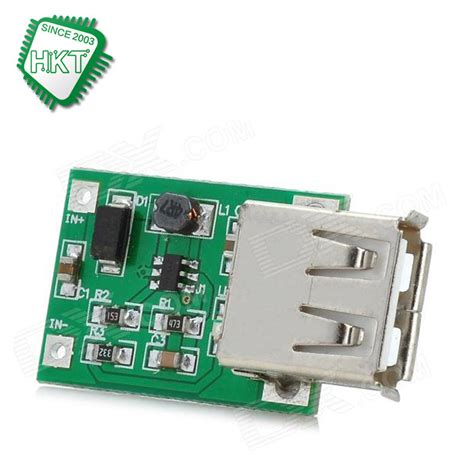
Innovations In Ceramic PCB Manufacturing: What To Expect From Your Supplier
In the rapidly evolving landscape of electronics manufacturing, ceramic printed circuit boards (PCBs) have emerged as a pivotal component, offering superior thermal management, electrical insulation, and mechanical stability. As industries increasingly demand high-performance solutions, the role of a ceramic PCB supplier becomes crucial in meeting these expectations. Understanding the innovations in ceramic PCB manufacturing can provide valuable insights into what one should anticipate from a supplier in this domain.
To begin with, ceramic PCBs are renowned for their ability to withstand high temperatures and harsh environments, making them ideal for applications in aerospace, automotive, and high-frequency electronics.
This inherent advantage is further enhanced by recent advancements in material science. Suppliers are now leveraging novel ceramic materials, such as aluminum nitride and silicon carbide, which offer even greater thermal conductivity and electrical insulation properties. Consequently, when selecting a supplier, it is essential to consider their expertise in utilizing these advanced materials, as this can significantly impact the performance and reliability of the final product.
Moreover, the manufacturing processes employed by ceramic PCB suppliers have seen significant innovations.
Traditional methods, such as thick-film and thin-film technologies, are being complemented by cutting-edge techniques like laser direct structuring (LDS) and additive manufacturing. These methods allow for greater precision and flexibility in design, enabling the production of complex geometries and miniaturized components. As a result, suppliers who have adopted these advanced manufacturing techniques can offer more customized solutions, catering to the specific needs of various industries.
In addition to material and process innovations, the integration of smart technologies in ceramic PCB manufacturing is another area where suppliers are making strides.
The use of artificial intelligence and machine learning in quality control processes ensures higher accuracy and consistency in production. These technologies enable real-time monitoring and predictive maintenance, reducing the likelihood of defects and enhancing overall efficiency. Therefore, a supplier that incorporates smart technologies into their manufacturing processes can provide a higher level of assurance regarding the quality and reliability of their products.
Furthermore, sustainability has become a key consideration in the electronics industry, and ceramic PCB suppliers are no exception.
The adoption of eco-friendly practices, such as reducing waste and energy consumption during production, is increasingly being prioritized. Suppliers that are committed to sustainability not only contribute to environmental conservation but also align with the growing demand for green electronics. Thus, when evaluating a supplier, it is beneficial to assess their sustainability initiatives and how they integrate these practices into their manufacturing processes.
Finally, the importance of collaboration and communication between suppliers and clients cannot be overstated.
As the demand for ceramic PCBs continues to grow, suppliers are expected to offer comprehensive support, from the initial design phase to post-production services. This includes providing technical expertise, assisting with design optimization, and ensuring timely delivery. A supplier that fosters a collaborative relationship with their clients can better understand their unique requirements and deliver solutions that meet or exceed expectations.
In conclusion, the innovations in ceramic PCB manufacturing are reshaping the expectations from suppliers in this field. By focusing on advanced materials, cutting-edge manufacturing techniques, smart technologies, sustainability, and collaborative client relationships, suppliers can offer enhanced solutions that cater to the diverse needs of modern industries. As such, when selecting a ceramic PCB supplier, it is crucial to consider these factors to ensure the successful implementation of high-performance electronic systems.
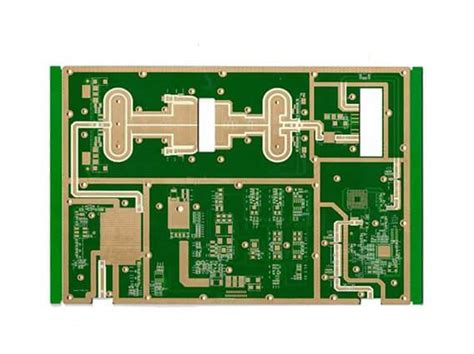
How To Evaluate The Quality Standards Of A Ceramic PCB Supplier
When selecting a ceramic PCB supplier, it is crucial to evaluate their quality standards to ensure that the products meet your specific requirements and industry benchmarks. The first step in this evaluation process involves examining the supplier’s certifications and compliance with international standards.
Certifications such as ISO 9001, which focuses on quality management systems, and ISO 14001, which pertains to environmental management, are indicative of a supplier’s commitment to maintaining high-quality production processes and sustainable practices. Additionally, compliance with industry-specific standards, such as IPC standards for printed circuit boards, further demonstrates the supplier’s dedication to quality.
Beyond certifications, it is essential to assess the supplier’s manufacturing capabilities and technological expertise.
A reputable ceramic PCB supplier should possess advanced manufacturing facilities equipped with state-of-the-art machinery and technology. This ensures precision in the production process and the ability to handle complex designs and specifications. Furthermore, the supplier’s expertise in ceramic materials, such as alumina or aluminum nitride, is critical, as these materials require specialized handling and processing techniques to achieve optimal performance in thermal management and electrical insulation.
Another important factor to consider is the supplier’s quality control measures.
A robust quality control system should be in place to monitor every stage of the production process, from raw material selection to final product inspection. This includes rigorous testing procedures, such as thermal cycling, electrical testing, and mechanical stress testing, to ensure that the ceramic PCBs can withstand the demands of their intended applications. Additionally, traceability of materials and processes is vital, as it allows for the identification and resolution of any quality issues that may arise.
Customer feedback and reviews also play a significant role in evaluating a ceramic PCB supplier’s quality standards.
Engaging with current or past clients can provide valuable insights into the supplier’s reliability, product quality, and customer service. Positive testimonials and a strong reputation in the industry are indicators of a supplier’s ability to consistently deliver high-quality products. Conversely, negative feedback or unresolved complaints may signal potential issues with the supplier’s quality standards or business practices.
Moreover, the supplier’s commitment to continuous improvement and innovation is a key consideration.
A supplier that invests in research and development demonstrates a proactive approach to enhancing product quality and staying ahead of industry trends. This commitment can lead to the development of new materials, processes, or technologies that improve the performance and reliability of ceramic PCBs.
Finally, evaluating the supplier’s logistical capabilities and after-sales support is essential.
Efficient supply chain management ensures timely delivery of products, while comprehensive after-sales support, including technical assistance and warranty services, provides assurance that any issues will be promptly addressed.
In conclusion, evaluating the quality standards of a ceramic PCB supplier involves a comprehensive assessment of their certifications, manufacturing capabilities, quality control measures, customer feedback, commitment to innovation, and logistical support. By carefully considering these factors, you can select a supplier that not only meets your quality requirements but also contributes to the success of your projects.



